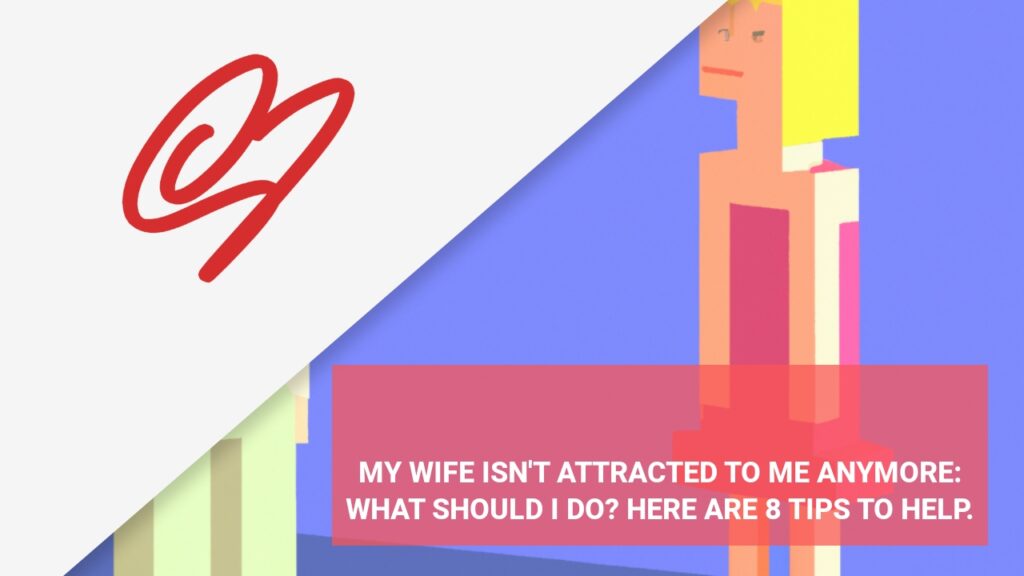
Hey Soul Bonding Love, Hope this letter finds you well. Listen, I’ve got this crazy problem and I don’t know who else to ask for advice. So I’ve been dating this amazing girl, let’s call her Amy, for nearly a year now. Amy is fantastic – she’s smart and funny with a heart of gold. Everything has been great up until a couple of months ago when she started apologizing all the time – like ALL THE TIME. It sounds silly when I put it like that but bear with me. Amy would apologize for everything under the sun: forgetting to pass me the salt at dinner, not replying immediately to my texts even though she was working, watching her favorite show without me even though I told her it was fine – you get the picture, right? It has gotten to the point where she says sorry so frequently that our conversations feel stifled and unnatural because every two sentences there comes an unwarranted apology. At first, I thought it was endearing in a quirky way – Believe me; dating someone so considerate is like hitting the jackpot! But it has come to a point where it looks more like an annoying habit or worse – some kind of insecurity or fear. I’ve tried talking about this with Amy repeatedly. Each time we discuss it though, she gets uncomfortable and clams up or even sometimes starts crying and then apologizes profusely for being such a mess (Yeah! go figure!). I’m genuinely at my wit’s end over here because on one hand I love Amy dearly but on the other hand listening constantly ‘sorry’ even when there is nothing wrong kind’a puts strain on our relationship. Do you think you could shine any light on why someone might be behaving this way? And more importantly how can I help her? Thanks in advance, Confused-and-trying-not-to-resent-the-word-sorry
The Raw And Honest Truth I Would Give To My Friends Or Family Member…
Here’s what I will say, you’re in a tough spot, but it’s one that can be navigated with the right approach and mindset.The first thing to point out here is that Amy’s behavior isn’t that uncommon. Many people tend to over-apologize as a product of low self-esteem or due to past experiences where they’ve been overly criticized. It could be a defensive mechanism, or simply a habit that’s developed over time.
Here’s the thing, apologizing excessively is often about more than just being overly polite. It may be that Amy is experiencing anxiety or insecurity deep down, perhaps feeling like she’s constantly doing something wrong, and she’s using the word “sorry” as a crutch. The fact that she gets uncomfortable, clams up, or cries when you try to discuss it is indicative of this possibility.
Listen, love and patience are crucial here. If Amy is struggling with her self-esteem or anxiety, criticisms – even well-intentioned ones – could make her feel worse.
I’d suggest trying a different approach when talking to her about it, one that emphasizes your concern for her well-being over how her constant apologizing affects you. This might make her feel less defensive and more open to dialogue.
Perhaps saying something like, “Amy, I’ve noticed you apologize quite often, even for things that don’t require an apology. I’m not upset with you; I’m just concerned about you and want to understand why you feel the need to do this.” This might help her feel safe and understood rather than criticized or under attack.
Beyond conversation, encourage her to seek professional help if this behavior starts affecting her quality of life. A therapist or counselor can provide tools and strategies for managing feelings of unworthiness, anxiety, or low-self esteem, which might be at the root of her excessive apologizing.
Most importantly, reassure her that your love is not conditional on her ‘perfect behavior’. That you love her for who she is – faults, quirks and all. This might help ease that internal pressure she seems to be feeling.
Remember, real love is patient and understanding. You’re strong for dealing with this in stride, but it’s okay if you feel frustrated sometimes. Just keep the lines of communication open and stay supportive. Good luck!
But, that’s just my personal viewpoint. I’ve asked an expert relationship coach to break it down for what it is.
It might provide you with some more context.
“My Girlfriend Keeps Saying Sorry”: Advice From A Relationship Coach
 Let’s unpack this situation, shall we? When we hear someone say **”my girlfriend keeps saying sorry,”** it might seem like a minor tic on the surface. But if you’re expressing concern about it, that suggests there’s more brewing beneath the surface than just a habitual phrase. Often, when someone is frequently apologizing, it can be indicative of underlying issues such as insecurity, fear of conflict, or a deep-seated need to maintain harmony—even at the cost of their own comfort.
Let’s unpack this situation, shall we? When we hear someone say **”my girlfriend keeps saying sorry,”** it might seem like a minor tic on the surface. But if you’re expressing concern about it, that suggests there’s more brewing beneath the surface than just a habitual phrase. Often, when someone is frequently apologizing, it can be indicative of underlying issues such as insecurity, fear of conflict, or a deep-seated need to maintain harmony—even at the cost of their own comfort.Excessive Apologies: A Symptom of Deep-Seated Insecurity?
Okay, so what this actually means is that your girlfriend might be struggling with self-esteem. Frequent apologies can sometimes signal that an individual doesn’t feel worthy or believes they are constantly at fault. This behavior could be rooted in past experiences where she might have been made to feel like she was ‘too much’ or ‘not enough.’ It’s important to understand where she’s coming from if you want to support her through these feelings.
Conflict Avoidance: Keeping the Peace at Any Cost
What your girlfriend may be getting at without realizing it is a powerful aversion to conflict. By apologizing preemptively or excessively, she might be trying to smooth things over before any sign of disagreement escalates into an argument. This peacemaking strategy can stem from a variety of sources—perhaps growing up in an environment where discord was discouraged or having previous relationships that penalized confrontation.
The Repercussions: Building Resentment and Miscommunication
It’s crucial to acknowledge that constant apologies can lead to unintended consequences. For one thing, it can dilute genuine remorse, making it tough for both parties to discern when an apology is truly warranted. Over time, this may lead to frustration and resentment on both sides—a recipe for simmering discontent that undermines relationship health.
Cultivating Open Dialogue: Encouraging Honesty Over Harmony
As someone who cares about their partner and wants a balanced relationship, it’s helpful to encourage open communication over reflexive apologies. Having honest conversations about feelings and boundaries can foster trust and mutual respect—vital ingredients for a strong partnership.
In modern dating terms, think of excessive apologizing like using too many emojis in text messages; sometimes they enhance conversation but used too often they lose meaning and can create confusion around intent.
Remember, understanding why your girlfriend keeps saying sorry isn’t about assigning blame—it’s about getting clarity on how you both contribute to dynamics within your relationship and finding ways forward together.
With Everything That’s Been Said & Done (Or Alluded To 😬), What’s Next?
Identify the Root Cause Together
Communication is key when dealing with sensitive issues in relationships. It’s vital to approach Amy with an open heart and a desire to truly understand her sudden behavior change. Ask her about her feelings and thoughts in a non-threatening way, creating a safe space for dialogue. Encourage honesty, and let her know that it’s okay to share without fear of judgment or immediate solutions. Sometimes, just knowing that they’re being heard can help someone open up about underlying issues they might be facing, such as anxiety or low self-esteem.Create a No-Apology Zone
Set up times or situations where apologies are off-limits, unless absolutely necessary. This could be during dinner, while watching TV together, or any other relaxed scenario you share daily. Explain that this is an exercise to help both of you break the habit and enjoy moments without interruptions by unnecessary apologies. Over time, this can help alleviate the pressure she might feel to constantly say sorry.Positive Reinforcement Instead of Reassurance
When Amy does something well or shows confidence in actions where she would normally apologize, offer positive reinforcement. Highlight these moments with compliments and appreciation for her efforts rather than reassuring her she doesn’t need to apologize. This reinforces good behavior patterns instead of focusing on what she shouldn’t do, which could trigger more apologies.Tackle Underlying Issues Together
Insecurity often has deeper roots, which may require professional assistance such as therapy or counseling. Be supportive if Amy decides to seek help but also suggest activities that can boost self-esteem like new hobbies, exercise routines, or even volunteering together. Shared experiences that build confidence could be beneficial in reducing the compulsion to over-apologize.Cultivate Patience and Understanding
Changing behavior takes time; habits don’t change overnight. Show your commitment by being patient with Amy’s progress and understanding setbacks when they occur. Your steady support will reassure her that she’s loved regardless of how many times she slips up during this period of adjustment.Promote Open Communication About Feelings
Encourage discussing feelings regularly without making it solely about the apology issue—it shouldn’t define your relationship interactions every day. When either of you start feeling overwhelmed by emotions within your relationship dynamics, take time out to talk it through calmly without distractions.Create Boundaries And Respect Them
While supporting each other is integral in any partnership, establish healthy boundaries. Let Amy know what behaviors impact you negatively but also give her space when needed for personal growth outside the relationship dynamic—this includes respecting boundaries each set out independently relating to communication styles or needing alone time.Need Some Relationship Thoughts? Write To Us!
Is your romantic life in a bit of a maze and you’re finding it hard to navigate your way? Maybe you’ve got a situation you’ve been pondering for ages, unsure of what to make of it. If you find yourself up at night, wrestling with a relationship query that has you stumped, we’re here to offer our loving but honest personal thoughts on your predicament.
We understand that sometimes you’re not looking for professional advice, but rather an empathetic ear and some thoughtful insights that can help you see your situation from a new angle. That’s exactly what we aim to provide—a fresh perspective to help you reflect on what you’re experiencing.
Just write in with your query, and we’ll share our individual viewpoints that are rooted in empathy, understanding, and genuine human experience. We don’t claim to have all the answers, nor do we pretend to be experts. We’re just here to offer our thoughts, one heart to another.
Whether it’s a first date dilemma, a ‘situationship‘ that you’re not sure how to navigate, or a long-term relationship hurdle, we’d love to offer our personal reflections.

